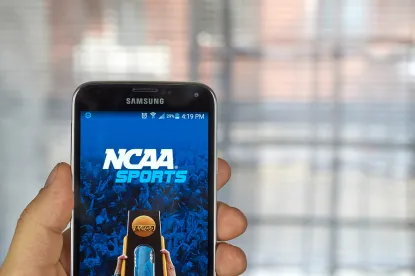While the focus of the recent Men’s NCAA Basketball Championship Game between University of Virginia and Texas Tech centered around the entertaining overtime finish culminating in Virginia’s first ever basketball championship, another storyline arose involving the runner-up Red Raiders. Specifically, graduate transfers played a role in Texas Tech’s magnificent tournament run due to the ability of these two student-athletes to become immediately eligible under the NCAA’s current Graduate Transfer Exception. Texas Tech is not the only institution taking advantage of this exception in college basketball, as the use of graduate transfers has increased exponentially across Division I. Recent studies conducted by the NCAA indicate that 124 graduate transfers participated for NCAA Division I basketball during the 2018-2019 season.
The current NCAA graduate transfer rule, a unique exception to the rule requiring student-athletes in football, men’s and women’s basketball, and a handful of other sports, to “sit out” their first year at their new Division I institution, has been used by hundreds of student-athletes since its inception. The current rule provides that student-athletes who earn their bachelor’s degree may participate in athletics as a graduate student at another Division I college provided they meet the criteria set forth in NCAA Bylaw 14.6.1 or obtain an NCAA waiver.
NCAA Bylaw 14.6.1 provides a one-time transfer exception a follows:
A graduate student who is enrolled in a graduate or professional school of an institution other than the institution from which he or she previously received a baccalaureate degree may participate in intercollegiate athletics if the student athlete fulfills the conditions of a one-time transfer exception set forth in Bylaw 14.5.5.2.10 and has eligibility remaining per Bylaw 12.8. A graduate student who does not meet the one-time transfer exception due the restrictions of Bylaw 14.5.5.2.10-(a) shall qualify for this exception, provided:
- The student fulfills the remaining conditions of Bylaw 14.5.5.2.10;
- The student has at least one season of competition remaining; and
- The student’s previous institution did not renew his or her athletically related financial aid for the following academic year.
This “graduate transfer” exception was intended to provide academically achieving student-athletes who successfully completed their undergraduate degree – with remaining athletic eligibility available – the opportunity to continue their college athletic career while seeking to achieve an advanced degree at another university in a program not offered at their undergraduate college.
However, the use of this graduate transfer has become increasingly controversial in football and basketball as recent data indicates that the majority of transfer students in these sports earn few credits toward their graduate degree and leave school as soon as their athletic eligibility expires.
In a study tracking the academic paths of graduate transfers following 258 out of 355 student-athletes from 2011 and 2012, the NCAA concluded that a majority of men’s basketball and football withdrew from their graduate program upon the completion of their athletic eligibility.

http://www.ncaa.org/about/resources/research/tracking-division-i-graduate-transfers
The alleged inequities caused by the use of this transfer may soon come to an end.
Shortly, the NCAA’s Division I Council will vote on a proposed measure to restrict the ability of student-athletes to utilize this transfer option by punishing the transfer’s destination university in the event that the student-athlete does not complete their graduate-level education. The rule change would require the school receiving the transferring student-athlete to ensure that the student-athlete graduates with a post-baccalaureate degree or risk putting their future teams in competitive harm by limiting available scholarships.Essentially, while a graduate transfer would only have one year athletic eligibility remaining at his new school, in most cases based upon degree requirements, the institution would have to account for a scholarship on its roster for two years.
The legislation would effectively curtail the current use of graduate transfers with one year of remaining eligibility because if the player is unable to complete his graduate school degree requirements within one year, the school would be forced to use an additional second scholarship year for the transferring student even though he had no athletic eligibility remaining.
The rule, which could become effective as soon as August 1st, would apply to only three sports, football, men’s basketball and women’s basketball. The potential loss of scholarship penalty will have a greater impact on the basketball transfers, as the potential loss of one of thirteen scholarships will have a much greater effect on the hardwood than it will on the gridiron and each school’s potential 85 football scholarships.
Expressing his support for the proposed legislation,
Sun Belt Conference Commissioner Karl Benson stated, “The graduation requirement is fair, it’s reasonable. The elimination of the hired player for one season without any academic requirement has not been good for the NCAA.”





 />i
/>i
